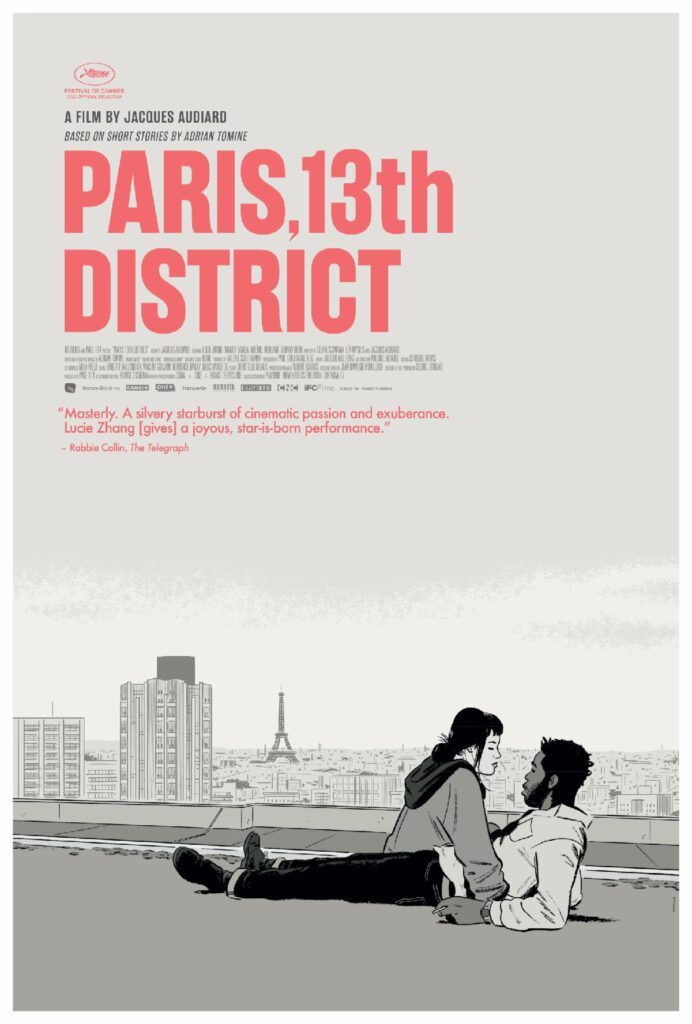
Writer/director Jacques Audiard’s latest film follows four young adults as they navigate the ups and downs of dating and professional life in Paris. Although the four drift in and out of each other’s lives in one cohesive narrative, their stories are adapted from unrelated comics by American cartoonist Adrian Tomine, as featured in his graphic novels Summer Blonde and Killing & Dying. For viewers familiar with Tomine’s source material, part of the joy of watching Audiard’s adaptation is appreciating how he fits the disparate pieces together into one seamless tapestry of modern romance.
We’re first introduced to Emilie (Lucie Zhang), a directionless free spirit who thinks nothing of sneaking out of her lousy job to quickly hook up with a Tinder date. She’s living rent free in her hospitalized grandma’s flat, while also pocketing whatever rent she can collect from the second bedroom. When her latest roommate candidate named Camille (Makita Samba) turns out to be a man, she immediately beds him, making a crude comment about starting at the highest level of attraction and working backward from there.
Meanwhile, Nora (Noemie Merlant) is trying to make a late play to complete college as she approaches her mid-30s, but encounters constant persecution and ridicule when she’s repeatedly mistaken for a prominent porn star named Amber Sweet (Jehnny Beth), leading her to drop out and try her hand at real estate. She ends up working with Camille, before also becoming his lover, but also can’t get over her trauma about her mistaken identity, leading her to contact Amber’s paid webcam to strike up a relationship with her and possibly something more.
It’s refreshing to see a multiethnic cast in a French production, more so that no attention is paid to it. Likewise, no attention is paid to the uninhibited amount of skin on display, with a sense of naturalism and comfort between the performers that drives home the ease with which the characters move through their young, unfettered relationships.
Zhang and Samba get the most screen time, and were both nominated for France’s prestigious Cesar awards (Most Promising Actor/Actress), but Merlant contributes the most moving performance as she grapples first with her mistaken identity and then her sexual orientation. She’s been down this queer path before in the superb Portrait of a Lady on Fire, and while she just doesn’t have the screen time here for maximum impact, she once again proves to be a fascinating, spellbinding actress.
The film is presented almost entirely in black and white, for no apparent reason other than art house cred and showy cinematography. Where Tomine’s original works were somewhat detached and unresolved, Audiard looks for and delivers emotional resonance in the wayward couplings of his characters, leading to perhaps not happily ever after, but happy for now.
Paris, 13th District opens in theaters and on VOD on Friday, April 15th.